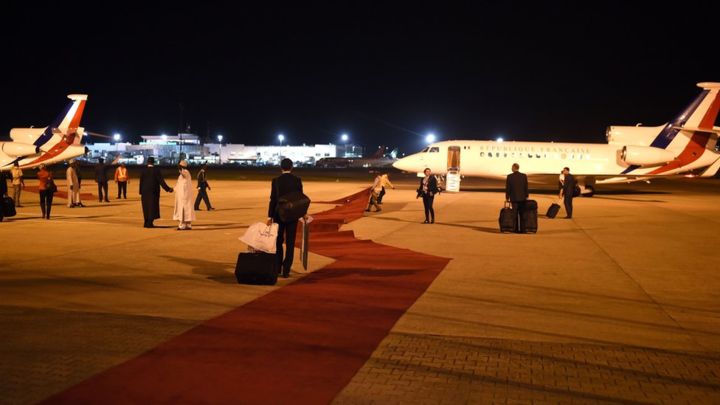- German, UK, Turkish Firms Jostle for Lagos, Abuja Airports
Turkey’s biggest airport operator, TAV Havalimanlari Holding AS, is planning to bid for concession contracts for four airports in Nigeria, according to two people with knowledge of the matter.
This came just as the Ministry of Aviation confirmed on Wednesday that companies from the United Kingdom, Germany and Nigeria had submitted bids to operate the airports.
The airports are the Murtala Muhammed International Airport, Lagos; Nnamdi Azikiwe International Airport, Abuja; Mallam Aminu Kano International Airport, Kano; and Port Harcourt International Airport, Rivers.
The Istanbul-based company, majority owned by Aeroports de Paris, has already submitted a non-binding bid for the airports, which include the MMIA and NAIA, according to a Bloomberg report, quoting people close to the development, who asked not to be named because the plan is not public.
One of the sources said the company was also considering capital expenditures in some of the four airports if it won the contract.
“I know TAV has made a presentation, but I can’t confirm at this moment if they formally submitted any offer,” a spokesman at the Ministry of Aviation, James Odaudu, told Bloomberg by telephone on Wednesday.
Odaudu said companies from the UK, Germany and Nigeria had also expressed interest in operating the four airports in Lagos, Abuja, Kano and Port Harcourt.
Transaction consultants will advise on the timing for formal bidding as well as on a plan to start a national carrier, Odaudu stated.
TAV operates more than a dozen airports, including Turkey’s largest, Istanbul Ataturk. It is seeking to add more airports abroad to its portfolio to compensate for the termination of the concession agreement for Ataturk, its biggest revenue earner, at the end of 2020.
TAV declined to comment when contacted for a response on Wednesday.
The media had exclusively reported on October 8 this year that companies owned by top Nigerian business moguls and some firms from Europe had shown interest in running the Lagos and Abuja airports.
Top government officials said companies owned by the top Nigerians were among those indicating interest to run the two major airports on terms to be stipulated by the proposed concession agreement.
Vice President Yemi Osinbajo had in September announced that the Federal Executive Council had agreed to the concession of the Lagos and Abuja airports.
Osinbajo stated this at the fifth edition of the presidential quarterly business forum held at the State House, Abuja, declaring, “I am pleased to say that the FEC has approved the concession of the Lagos and Abuja airports.”
The Federal Government has also approved Kano and Port Harcourt airports for concession, as well as transaction advisers for the process, according to the Minister of State for Aviation, Hadi Sirika.
“President (Muhammadu) Buhari has approved that the Lagos, Abuja, Kano and Port Harcourt airports be under concession. The Federal Executive Council has also approved it as well. FEC has approved transaction advisers for the airports and they will start the process soon,” the minister had stated.

 Forex3 weeks ago
Forex3 weeks ago


 Naira2 weeks ago
Naira2 weeks ago
 Billionaire Watch2 weeks ago
Billionaire Watch2 weeks ago




 Naira2 weeks ago
Naira2 weeks ago




 Naira2 weeks ago
Naira2 weeks ago




 Naira1 week ago
Naira1 week ago




 Naira4 weeks ago
Naira4 weeks ago




 Naira3 weeks ago
Naira3 weeks ago






















